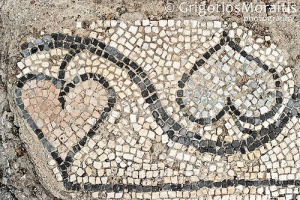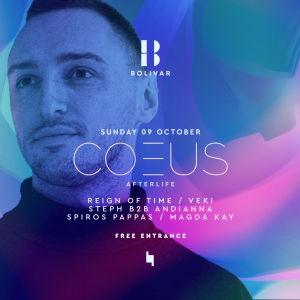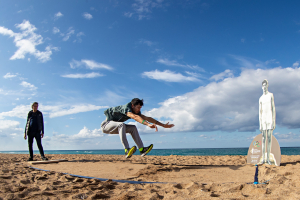XpatAthens
A Record-Breaking Summer, One Step Closer To Sustainable Tourism
Towards a sustainable model of tourism
The increased tourist flows have raised serious concern among the tourist industry as professionals are realizing the importance of a sustainable model of tourism against the threat of climate change and over-tourism in certain time periods or destinations. At the same time there is a growing concern about Greece following the modern mega-trends in tourism ensuring the quality of services.
The Greek Tourism Confederation’s (SETE) research body INSETE, has published in cooperation with Deloitte company, the study “Greek Tourism 2030 | Action Plans” taking into account global trends that affect future tourism development in order to help decision-makers improve the Greek tourism product. The study proposes actions that could lead to the extension of the tourism season, improve the share of tourist activity and demand across the country, as well as increase the average length of stay, and other factors to help the tourism economy.
Greener projects by Greek authorities
The Greek Ministry of Tourism has set as a top priority the extension of the tourism season in an effort to reduce pressure in specific areas and time periods, mainly through all year-round campaigns promoting winter tourism, city breaks, Easter destinations, lesser-known summer destinations in Greece, etc. Infrastructure upgrades in order to mitigate the consequences of massive traffic flow, particularly in the islands are also planned, while a key priority of the Ministry is the transition of the Greek tourism industry to a more sustainable and environmentally friendly development model in order to deal with the effects of the climate crisis.
To this end the Ministry of Tourism and Google recently announced their cooperation concerning the creation of new training programs for small and medium-sized tourism enterprises, in collaboration with the Global Sustainable Tourism Council (GSTC). At the same time, Google has announced $1 million in funding from Google.org to support organizations that help social enterprises in Greece, with an emphasis on sustainability and ecotourism.
To read this article in full, please visit: greeknewsagenda.com
Love Like a Greek: The Six Types of Love
Looking for an antidote to modern culture’s emphasis on romantic love? Perhaps we can learn from the diverse forms of emotional attachment prized by the ancient Greeks.
Today’s coffee culture has an incredibly sophisticated vocabulary. Would you like a cappuccino, an espresso, a skinny latte, or maybe an iced caramel macchiato?
The ancient Greeks were just as sophisticated in the way they talked about love, recognizing six different varieties. They would have been shocked by our crudeness in using a single word both to whisper “l love you” over a candlelit meal and to casually sign an email “lots of love.”
So what were the six loves known to the Greeks? And how can they inspire us to move beyond our current addiction to romantic love, which has ninety-four percent of young people hoping—but often failing—to find a unique soul mate who can satisfy all their emotional needs?
1. Eros, or sexual passion
The first kind of love was eros, named after the Greek god of fertility, and it represented the idea of sexual passion and desire. But the Greeks didn’t always think of this as something positive, as we tend to do today. In fact, eros was viewed as a dangerous, fiery, and irrational form of love that could take hold of you and possess you. Eros involved a loss of control that frightened the Greeks. This is odd, of course, because losing control is precisely what many people now seek in a relationship. Don’t we all hope to fall “madly” in love?
2. Philia, or deep friendship
The second variety of love was philia or friendship, which the Greeks valued far more than the base sexuality of eros. Philia pertained to the deep comradely friendship that developed between brothers in arms who had fought side by side on the battlefield. It was about showing loyalty to your friends, sacrificing for them, and sharing your emotions with them. (Another kind of philia, sometimes called storge, embodied the love between parents and their children.)
3. Ludus, or playful love
Ludus was the Greeks’ idea of playful love, which referred to the affection between children or young lovers. We’ve all had a taste of it in flirting and teasing in the early stages of a relationship. But we also live out our ludus when we sit around in a bar bantering and laughing with friends or when we go out dancing.
To read this article in full, please visit: greekreporter.com
3 Bars In Athens Among The Top 50 In The World
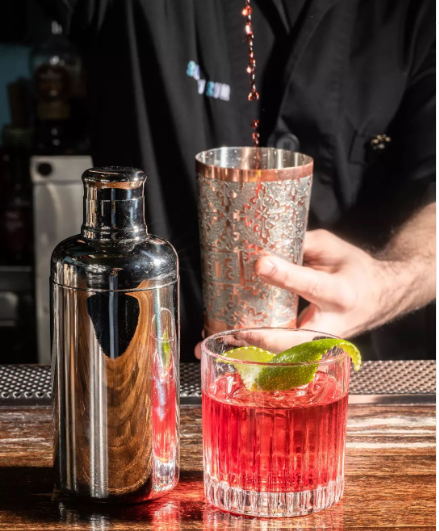

@the_clumsies
Originally published in Greek on: olivemagazine.gr
3 Bookshop Cafés In Athens You Will Fall In Love With This September


The lobby space overhead Ianos bookstore on Stadiou Street has been transformed into a delicate cafe where students, scholars, and bookworms take shelter year-round. There you may jumpstart your literary journey with a drawn-out cup of coffee, while examining the space oozing with artistic interest!
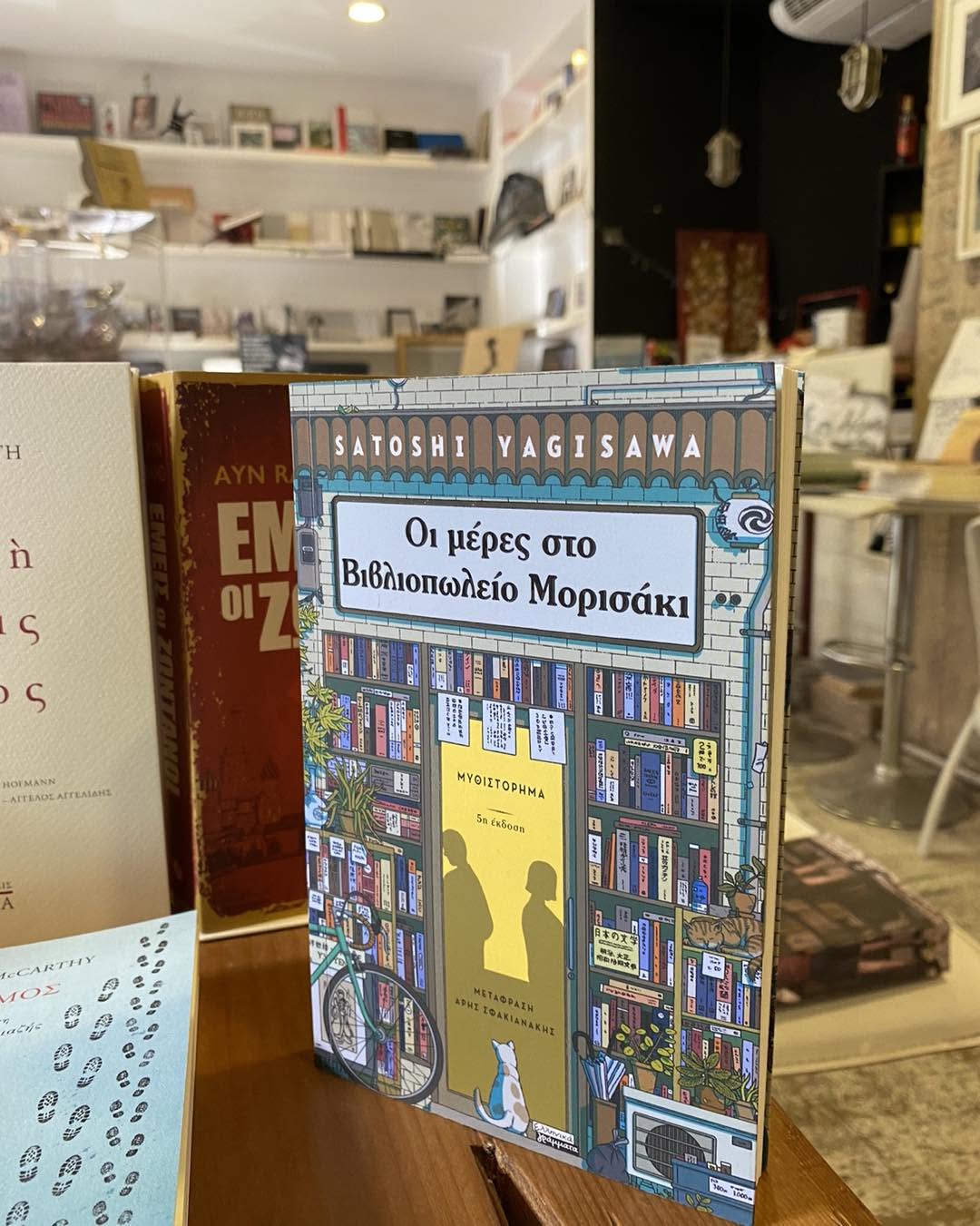
@ephellas
Address: Skoufa 64, Athina
Telephone: 21 0361 7461
Daktylios: Traffic Restrictions In Downtown Athens Return
The so-called “Athens ring” (daktylios), which was suspended over the summer, is in force from 7 a.m. to 10 p.m. Monday to Thursday and 7 a.m. to 3 p.m. on Fridays.
The restrictions do not apply to low-emission vehicles. However, the owners of electric, natural gas, autogas, and hybrid vehicles, as well as and Euro 6 diesel cars that emit no more than 120g/km of carbon dioxide, must apply for a special exemption permit via a dedicated website (greek only).
Holders of exemptions from last year have up to 10 days to renew them, the Citizen Protection Ministry said.
Originally published on: keeptalkinggreece.com
Renewables Fully Cover Power Demand For First Time On Record
Independent Power Transmission Operator (IPTO) said on Monday that renewables accounted for 100% of the power generation for at least five hours last Friday, reaching a record high of 3,106 megawatts.
Like other European countries, Greece has cut its reliance on Russian gas following the war in Ukraine by increasing liquefied natural gas (LNG) imports. It has also boosted coal mining, pushing back its decarbonization plan.
The share of renewables from solar, wind, and hydro stood at 46% of the country’s power mix in the eight months to August this year, from 42% in the same period in 2021, according to Greece-based environmental think-tank The Green Tank.
Greece aims to attract about 30 billion of euros in European funds and private investments to upgrade its electricity grid and more than double its green energy capacity to account for at least 70% of its energy mix by 2030.
It plans to have 25 gigawatts of installed renewable energy capacity from about 10 gigawatts now but analysts say Athens might reach that target sooner.
Originally published on: ekathimerini.com
Coeus (Afterlife) Live At Bolivar Beach Club
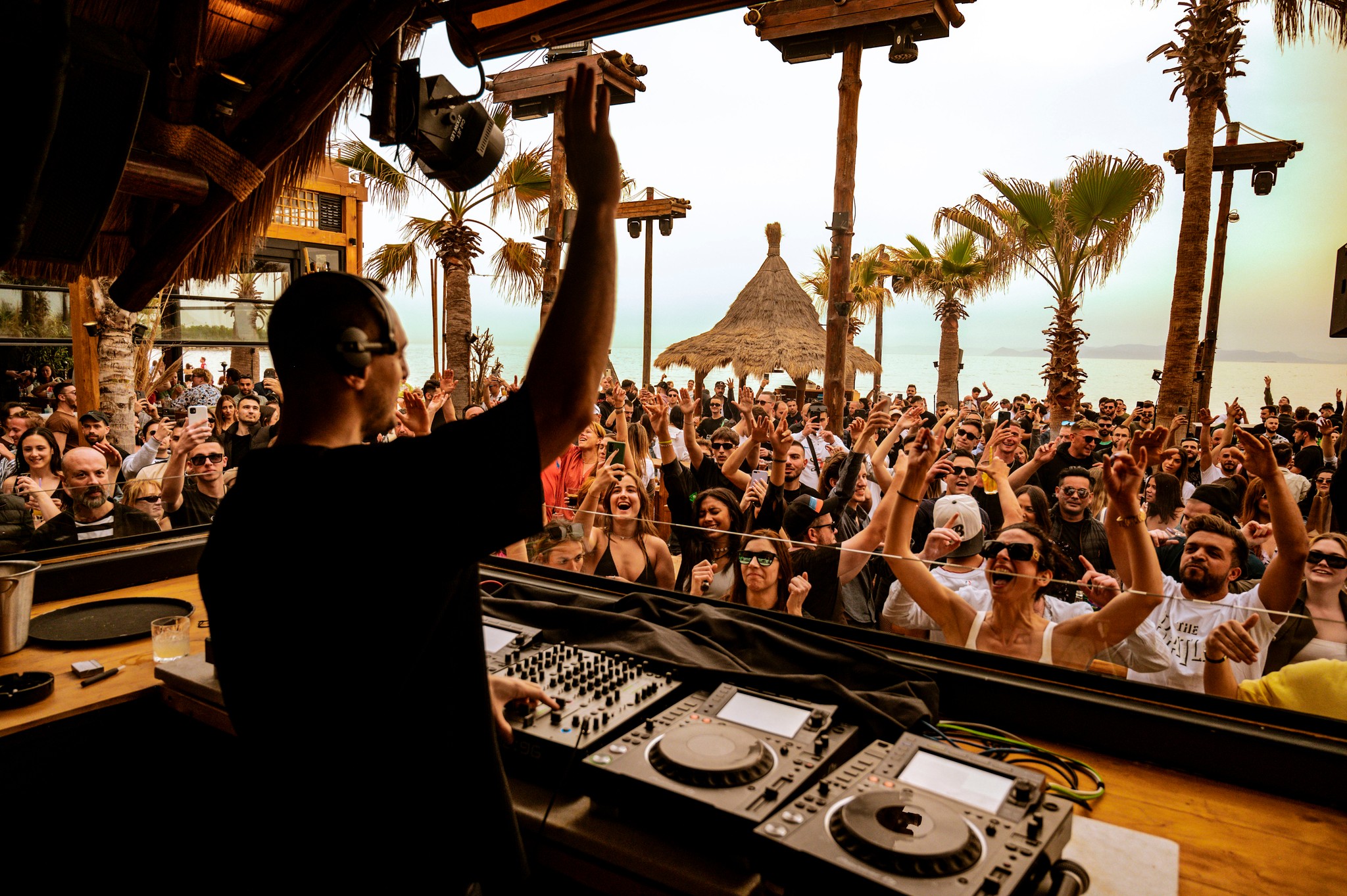
FokiaNou Art Space - “What Defines Us”
Participating artists: Ines Benaki, John Bicknell, Mary Cox , Panajotis Daramaras, Sarah Ettlinger, Alexandros Georgiou, Marietta Kallona, Nina Kotamanidou, Kelly Koumarianou, Yorgos Kostakis, Despoina Pantazi, Dionisiοs Pappas, Lea Petrou, Geeta Roopnarine, Christina-Sylvia Simantira, Georgia Maggy Touliatou, Panagiotis Voulgaris.
Opening: Thursday, 6 October 18.00
Duration: 6 - 22 October, 2022
Hours: Thursday – Saturday 17.00-20.00
Distinguished Athletes Will Join The 10 Years Celebration Of Navarino Challenge 2022
- The gold and bronze Olympic medalist, 3-time world champion and 6-time European champion in rings, Lefteris Petrounias
- The gold Olympic medalist, world champion and European champion in long jump, Miltos Tentoglou
- The gold Olympic medalist in rowing, Stefanos Ntouskos
- The gymnastics champion, Vasiliki Millousi, with three participations in the Olympic Games and many distinctions in world, European championships and in the Mediterranean Games
- The Greek men’s national water polo team coach that won the silver medal at the Olympic Games, the top team in the world according to FINA and the top team in the the Panhellenic Sports Journalists Association (PSAT) awards in 2021, Thodoris Vlachos
- EuroLeague Legend, Dimitris Diamantidis
- The former international basketball champion and holder of European titles, Georgios Printezis
- The world champion in track cycling, Christos Volikakis
- The three-time bronze world champion in wrestling, Maria Prevolaraki
- The silver world champion in swimming, Kristian Gkolomeev
Alongside them Nasos Ghavelas, Grigoris Polychronidis, Alexandros Nikolaidis, Periklis Iakovakis, Panagiotis Giannakis, Evina Maltsi, Joe Arlauckas, Michalis Triantafyllidis, Georgia Kaltsi, George Lazaridis, Grigoris Souvatzoglou, will be there and compose a unique team that will be united with the event’s participants on October 21-23.
Watch here the running routes of Navarino Challenge, along with all their technical characteristics.
Extensive schedule with numerous actions
This year’s schedule will be the richest ever in the 10-year history of Navarino Challenge. People of all ages and abilities with the message “Sports Unites People” will join this celebration and enjoy unique activities such as:
- Tennis demonstration by the wheelchair tennis player and member of the National team George Lazaridis powered by Miele
- Basketball demonstration powered by Samsung by wheelchair players and members of the National team
- 4on4 basketball tournament by Trace 'n Chase
- Tennis Induction powered by Miele for ages 6–9 and 10–13 years old with the support of Mouratoglou Tennis Center – Costa Navarino
- Bike Tour at Voidokilia with the World Champion in Track Cycling Christos Volikakis powered by Stoiximan in collaboration with Navarino Outdoors
- High intensity training for people of all ages by Dimitris Moros & FitnessArt
- Kick boxing lessons powered by Samsung for people of all ages from the kick boxing champion, Alexandros Nikolaidis
- Baby Swimming Lessons by Red Swim Academy & Swim O' Clock for children up to 3 years old with one parent
- Boxing lessons by Christos Gatsis and Vizantinos Target Sport Club
- Spinning Challenge for people of all ages powered by Vikos with Dimitris Moros & FitnessArt
- Pilates lessons from the team of the pilates instructor Mandy Persaki powered by Samsung
- Yoga by Messinian Spa from FitnessArt
- Men’s Round Robbin Tournament with UTS format powered by Miele with the support of Mouratoglou Tennis Center – Costa Navarino
- Women’s Round Robbin Tournament with UTS format powered by Miele with the support of Mouratoglou Tennis Center – Costa Navarino
- Sea Kayaking to the island of Sphacteria with the support of Explore Messinia
- Gravel Bike Tour 30km at the Kalamaris Waterfall powered by Vikos in collaboration with Navarino Outdoors
- Basketball lessons for children 5 to 16 years old with Dimitris Diamantidis and Georgios Printezis powered by Iroes, together with Evina Maltsi & Joe Arlauckas
- Half day Kids Camp for children 5 to 15 years old with the support of Mouratoglou Tennis Center – Costa Navarino
- Padel tournament powered by Stoiximan with the support of Mouratoglou Tennis Center – Costa Navarino
- Beachathlon powered by Europa (Track and field games for parents & children 6 to 13 years old) by Olympian and European Champion Periklis Iakovakis
- F45 Barrio Salamanca Heavy Cardio Workout by the F45 team together with Dimitris Moros & FitnessArt
- Tsimikas Football Clinics for children 13-17 years & 5-12 years powered by Prosport
- Climbing lessons with Christina Flampouri powered by The North Face, supported by Navarino Outdoors
- King of the Court Women’s Beach Volley Tournament from Triantafyllidis Beach Arena powered by Europa
- King of the Court Men’s Beach Volley Tournament from Triantafyllidis Beach Arena powered by Europa
- King of the Court Mixed Beach Volley Tournament from Triantafyllidis Beach Arena Mixed powered by Europa
- Long jump with the gold Olympic medalist Miltos Tentoglou powered by Stoiximan
- Golf lessons by Bombay Sapphire with the support of Navarino Golf Academy
- Gymnastics by the gold and bronze Olympic medalist in rings Lefteris Petrounias powered by Stoiximan
- Gymnastics by the champion Vasiliki Millousi powered by Iroes
- Rowing lessons from the gold Olympic medalist in rowing Stefanos Ntouskos powered by Stoiximan with equipment from Concept2
- Freestyle wrestling lessons with the world champion Maria Prevolaraki powered by Stoiximan
- “Feed the Fish” Golf Exhibition Game powered by Samsung
- Swimming lessons from the silver world champion Kristian Gkolomeev powered by Stoiximan
- Half marathon powered by Miele
- 10km run powered by Stoiximan
- 5km run powered by Samsung
- 1km run powered by Vikos for children 10-14 years old & up to 9 years old
You can see here the event’s schedule.
Register now for the running activities (21.1km, 10km, 5km, 1km) through the following link.
For group registrations of 10 people or more, a 20% discount applies. For more information, please contact the event organizers.
Live the unique sports experience and stay at The Westin Resort Costa Navarino
Enjoy a weekend with more than 40 activities for people of all ages. Book now the event’s accommodation package with half board and live this year’s unique sports and cultural experience. For more information on accommodation packages at The Westin Resort Costa Navarino you may send your email to booking(at)navarinochallenge.com or call Vita N Travel at +30 210 3249070.
Check the accommodation packages here.
Stoiximan is the event's Grand Sponsor.
Samsung Electronics Hellas supports the event for another year as its Official Technology Sponsor.
Miele and Europa are the event’s Official Sponsors.
Vikos Natural Mineral Water is the Official Water.
Luanvi is the Official Sports Supplier.
Sixt of the Motodynamics group is the Premium Mobility Partner.
Costa Navarino and The Westin Resort Costa Navarino are the Official Hospitality Sponsors.
Poseidonia Restaurant, Karalis Beach Hotel and Bombay Sapphire are Navarino Challenge’s Official Supporters.
Trace ‘n Chase is the Sports Memorabilia Partner.
Kois Optics are the event’s Official Optics Partner.
Messinian Spa is the Official Beauty Partner.
Athens Medical Group is the Medical Partner.
Pilia Express, the transportation company based in Pylos, Pylos-Nestor Municipality and Phee, are the event’s Partners.
SKAI is the Premium TV Partner.
Concept2, Explore Messinia, FitnessArt, F45 Barrio Salamanca, Mouratoglou Tennis Center – Costa Navarino, Navarino Golf Academy, Navarino Outdoors, Pilates by Mandy, Red Swim Academy, Swim O’ Clock, Triantafyllidis Beach Arena, Vizantinos target sport club are Navarino Challenge’s Athletic Partners.
The event is assisted by Vita N Travel and Kayak.
Navarino Challenge will take place under the auspices of the Ministry of Tourism and the Greek National Tourism Organization.
The event has joined the Greek actions of the #BeactiveHellas 2022 program of the European Commission and is held under the auspices of the General Secretariat of Sports.
All running races are co-organized with Messiniakos Gymnastic Club and EAS SEGAS Peloponnese Region.
The event is organized by ActiveMedia Group which is also responsible for the event’s Sports Production.
Hashtags: #navarinochallenge #costanavarino #sportsunitespeople #10yearsNavarinoChallenge #eatwell #runwell #livewell
(photo by Angelos Zymaras @ Navarino Challenge)
ALAN CARR Live In Athens
Alan’s back on the road with a brand-new stand-up show ‘Regional Trinket’. From the exhilarating high of his star-studded wedding day to the low of lockdown stuck on a farm, a lot has changed since Alan’s last tour four years ago, including Alan. Nowadays, it’s all about finding happiness and joy in the small things - why be a national treasure when you can be a Regional Trinket?!
Alan’s unique style of humour and effortless stage presence has made him one of Britain’s most successful and treasured comedians. With 16 series of Channel 4’s Chatty Man under his belt, Alan has won a multitude of awards including the publicly voted 2015 NTA and a prestigious BAFTA in 2013. Alan’s 2015 tour Yap, Yap, Yap saw him perform over 150 dates across the UK and Ireland culminating in the release of his DVD. His previous tour Spexy Beast Live was a 33-date arena tour. The DVD of Alan’s 2007 stand-up show, Tooth Fairy Live topped the HMV charts and was a Christmas 2007 top seller. He has also released two best-selling books Look Who It Is and Alanatomy.
Read more about Alan Carr's upcoming show HERE!


